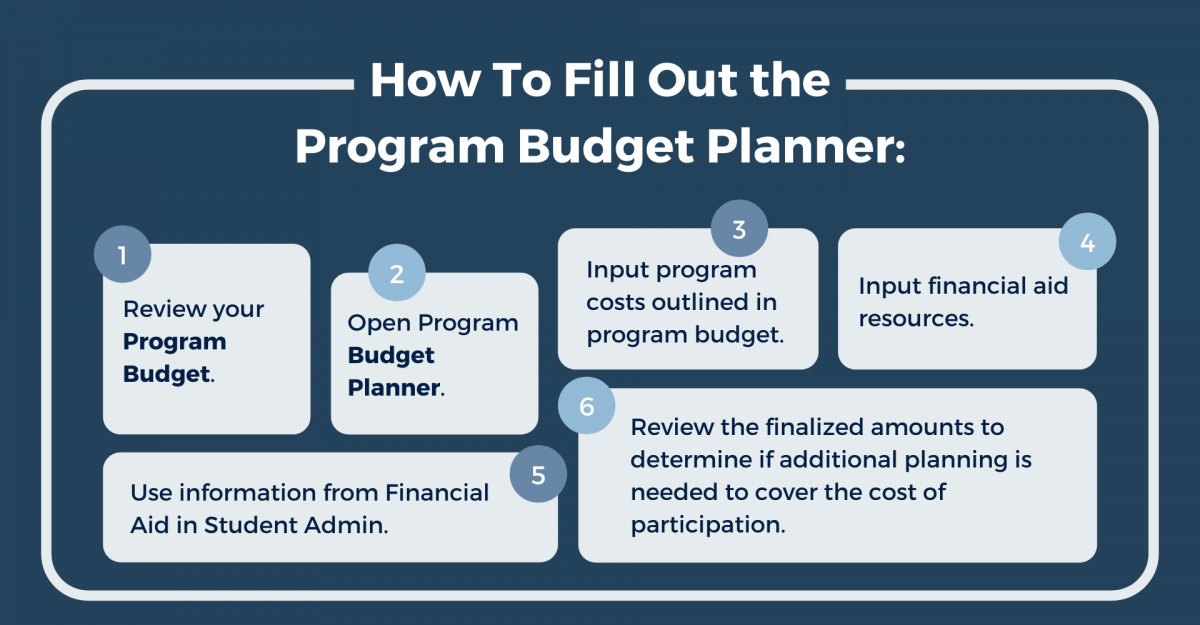Program Budget Planner
The Program Budget Planner is an optional tool for students to use when planning for the finances associated with a specific EGL program. Students can plug in the applicable financial information for their program using the finances tab of the program brochure for detailed budget items. Students can also input their personal financial aid package information, and review the types of aid that are applicable to their program on the program brochure. Not all types of aid are applicable to all programs, so it is important to review the program financial information carefully.
The Program Budget Planner can be used during an EGL advising meeting for students who would like to review questions about their budget or the resources that are available to pay for the EGL program. Students will notice budget items reflect billable items, or those to be paid through their UConn fee bill, as well as non-billable, or out of pocket expenses associated with their program. Accounting for billable and non-billable expenses will allow students to prepare for the total costs anticipated with participation in an EGL program.
Tips for Budgeting
Experiential Global Learning seeks access for all UConn students to academic opportunities locally and globally. We recommend consideration of some of the following factors when selecting a program:
Compare programs’ durations and locations.
Shorter term programs may seem less expensive at first glance, but semester programs may provide greater value, depending on other factors. Costs of living also vary by location. Consider more non-traditional locations or smaller cities to keep expenses affordable.
Review our different program types and their cost structures.
Experiential Global Learning programs vary in their cost structures, which affect what sort of financial aid and scholarships may apply. Please review your program’s brochure in our database to determine its cost structure.
Compare currency exchange rates.
The U.S. Dollar will go further in some countries than others, depending on exchange rates. Being prepared for how U.S. currency will convert into local currency can help you better choose a location as well as budget and spend more wisely while on your program.
Plan a budget based on your lifestyle.
Consider tracking your expenses for a month while here at home. This will help you determine how much you should budget for personal expenses while on your program.
Get creative with your approach to budgeting.
- Students can take a look at their personal budget to determine if they can cut out something they regularly spend on to save funds for their program. This is something the student could resume consuming after returning from their program or when the goal is reached.
- Banks can assist with budgeting – take a look on their website or call to inquire.
- Use points/miles: Select a credit card that you know you can pay off and use regularly for expenses. Miles can be used for your airline ticket or points can be turned in for other useful benefits.
